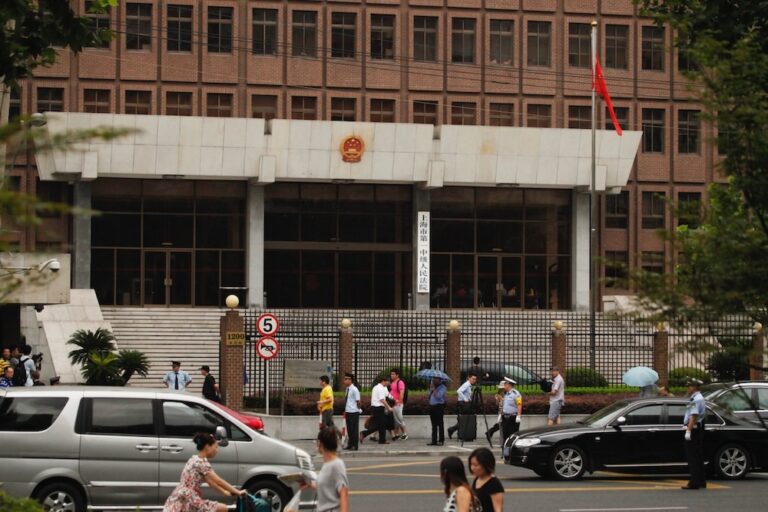Internet officials in China have deleted at least 210,000 online posts and shut down as many as 42 websites since mid-March for allegedly spreading rumors, the state-run news agency Xinhua.
(CPJ/IFEX) – New York, April 13, 2012 – Chinese authorities should halt their censorship of Web content in the aftermath of senior politician Bo Xilai’s dismissal, the Committee to Protect Journalists said today. Internet officials in China have deleted at least 210,000 online posts and shut down as many as 42 websites since mid-March for allegedly spreading rumors, the state-run news agency Xinhua reported on Thursday.
The Xinhua report did not tie the crackdown to the mid-March ouster of Bo Xilai, the former Chinese Communist Party leader in the southwestern city of Chongqing. State news websites reporting on the story did not name any of the websites that had been shut down or the posts that were deleted. However, the move appears to be the latest in a series of attempts to maintain order online after Bo’s dismissal sparked rumors of an attempted coup.
Comment functions on two leading microblogs were disabled for three days earlier this month, and state media reported that police had detained six unidentified individuals for allegedly fabricating or disseminating rumors. Censors even blocked the city name “Chongqing” and the word “tomato” – a code name for Bo-from searches on the popular microblog site Weibo.
“Each time authorities censor information in the Bo Xilai scandal, they intensify the public’s interest in the story at home and abroad,” said Bob Dietz, CPJ’s Asia program coordinator. “The country’s leadership is allowing its censors to send a message that there is something to hide.”
Separately, The Wall Street Journal reported that several Chinese and overseas websites could not be accessed within the country for two hours on Thursday. In addition, Internet users outside China could not access key Chinese websites, the report said. The Journal also reported that the blocking did not seem to be the result of equipment failure but said it was not clear if the blackout was intentional.


